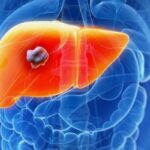FDA Advisory Panel Questions Data Reliability for Amgen’s Lung Cancer Drug Lumakras

Advisers to the U.S. Food and Drug Administration (FDA) have raised concerns about the reliability of data from a late-stage trial of Amgen’s drug Lumakras, which is used to treat a specific type of advanced lung cancer. This development has cast uncertainty over the FDA’s forthcoming decision on whether to grant traditional approval for the drug.
Lumakras was initially approved by the FDA in 2021 under an accelerated pathway, with the condition that confirmatory data be obtained for traditional approval. The primary objective of the confirmatory study was to assess progression-free survival (PFS), measuring how long it takes for the disease to worsen. However, the FDA questioned certain methods employed during the trial.
During the FDA’s advisory panel meeting, the expert advisers voted 10 to 2 in favor of the opinion that the primary goal of the late-stage confirmatory study could not be relied upon to assess the drug’s benefits. It should be noted that some panel members expressed reservations about the narrowly framed voting question.
One key concern discussed during the meeting was the flexibility given to trial participants to switch between the treatment and control groups, potentially affecting the trial’s integrity.
Data from the confirmatory study did indicate that Lumakras reduced the risk of disease progression by 34% compared to chemotherapy in patients with advanced lung cancer. However, the drug did not show a significant difference in overall survival, which is typically considered the gold standard for evaluating cancer drugs. Amgen clarified that the study was not designed to demonstrate a survival benefit.
This panel decision aligns with earlier assessments from FDA staff reviewers who raised concerns about potential bias and the adequacy of the trial data, citing issues with the trial’s execution and loss of follow-up data from patients who withdrew their consent.
Lumakras is currently approved for the treatment of advanced lung cancer in patients with specific KRAS gene mutations who have experienced disease progression after previous treatments. Accelerated approval is granted by the FDA in situations where there is an unmet medical need and preliminary data suggest a drug’s effectiveness. Traditional approval is contingent on subsequent confirmatory trials demonstrating safety and efficacy.
Lumakras is an oral cancer medication designed to target a mutated form of the KRAS gene found in approximately 13% of non-small cell lung cancers and occasionally in other solid tumors.
The FDA, while typically considering the advice of its expert panels, is not bound to follow their recommendations. The agency is expected to make a decision regarding traditional approval for Amgen’s Lumakras by December 24th.





